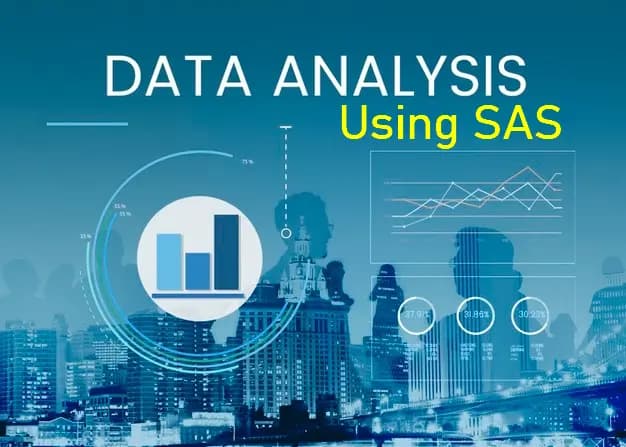Businesses have realized the value of digital data for their operations as well as the fresh business prospects that data collection and analytics offer. They’ve also begun to investigate machine-learning applications that aid in the resolution of challenging issues that can be resolved through knowledge gleaned from vast amounts of data.
They have begun to comprehend and recognize the vital info that they have. To enhance their operations and company, they are gathering, analyzing, and exploiting this data.
The two most obvious approaches for businesses to monetize data are as follows:
- Data is collected and analyzed for product development purposes, used to create better products, which are then to customers. This results in increased sales, products with higher added value or more closed deals.
- Data is used to identify problems and bottlenecks in internal processes, which are then eliminated to improve business efficiency and profitability.
Companies must think outside the box and be innovative in their approach to the marketing of data. They often excel at the organized engineering-like data collection and analysis process, but fall short on the creative and business fronts. They fail to utilize and profit from all of the data they have.
The five motivational strategies for businesses to monetize their data are listed below, along with examples from real-world situations to show how they actually work.
1. Selling insights to customers
It makes sense to take already-existing data, aggregate and enhance it, and then sell it to clients as fresh, worthwhile insights. The price of the bundle that is sold to clients can be raised by bundling reports, online dashboards, and indices with the company’s current offering. Machine learning applications can be added to user interfaces to improve how customers engage with brands or get the services they need. New insights are developed “on-the-go” during the consumer experience.
Leading Finnish job portal Oikotie.fi has developed a clever strategy for turning its data into a profit. For its B2B clients, Oikotie.fi developed a solution that is chargeable: after making a payment, recruiters can view how their job postings compare to those of the other (anonymized) players in their sector. This information generates fresh money for the job board and aids B2B clients in optimizing their recruiting ads.
2. Empowering the sales force with data
A sales organization’s role in a company is to maximize sales. Data can be a highly effective tool in reaching that target. Smart companies empower their sales force with rich customer data sets that help them easily identify customer problems, potentially churning customers and sales leads. With data, the sales force can give better product presentations, improve customer service and use more tailored sales argumentation when meeting customers. Smart companies position themselves as outstanding data leaders, and sales people play an important role in delivering that message to customers.
Read Also: How to do Data Analysis in SAS?
The Finnish elevator and escalator company Kone is a good example of a firm that has given its sales force access to valuable data. When a sales rep meets a customer who has a Kone elevator or escalator installed, he/she is well informed on the condition of the device, including any potential problems, and can help the customer extract the most value out of the device. Often this leads to additional maintenance services and/or spare parts sales.
3. Using data in marketing and advertising
Marketing and advertising strategies can be developed using information about consumers and their interests. You have two choices: either the business optimizes its own marketing and advertising using its data, or it sells its data to other businesses so they can do the same.
Retailers buy data from the search and discovery app Foursquare so they can tailor their outdoor and online marketing to correspond with the paths people take to go around the city. Media firms gather digital information on people’s interests, such as their love of food, sports, or fashion, and then sell it to internet marketers.
In order to maximize sales of umbrellas, swimwear, and winter jackets, apparel merchants can use weather forecasting services like Foreca to enhance their advertising. eCommerce businesses like Zalando gather information on abandoned shopping carts as part of their services and then target these potential customers’ Facebook feeds and other online channels with their own online advertising.
4. Selling data to players up and down the industry value chain
Companies often view their business as a “silo” and the data they have, they’ve derived from their own operations and own customer interactions. They use it for their own purposes only. The reality is that they’ve been operating in network environments and value chains where the final customer delivery is the result of the joint effort of several collaborative companies.
In recent years many companies have woken up to the fact that these networked business environments create opportunities for sharing and capitalizing data from company to company. Data can be an important asset in optimizing the operations and cooperation of the players in the value chain. Companies can monetize their data by selling it to their suppliers and vendors down the value chain or by selling it to retailers, resellers and other sales-related partners up the value chain – or both.
The provision of data from one player to another is typical in pharmaceutical value chains. Finnish pharmaceuticals distributor Tamro sells data on drug purchases by the Finnish people to local pharmacies, who can compare their own sales against their competitors and optimize their drug display and stock in stores. Tamro also sells data to drug manufacturers like GSK and Novartis, who then use the sales data to set prices for their products. Tamro very cleverly capitalizes its data both up (pharmacies) and down (drug manufacturers) the pharmaceuticals value chain.
5. Selling data to players outside your own industry
Examining opportunities outside the company’s sector or value chain can provide less obvious ways to monetize data. A number of participants might be eager to learn more about consumer trends, economic activity, or other pertinent subjects. Unexpected fields might contain these players. Companies should actively look for these participants and investigate creative joint venture opportunities.
Retail banks like Nordea and Danske Bank are now compelled to make their accounts and payment information available for use by others as a result of regulatory changes in the EU. Fintech, information services, telecoms companies, and others with the ability to develop new digital services based on consumer banking data now have access to attractive new business opportunities. Another such illustration comes from the sportswear sector, where businesses like Nike have begun to gather information from smart sports apparel.
They may start providing that information to insurance providers in the future, who can use it to forecast a customer’s demand for health insurance. A third example: export and import volumes of goods in harbors are a good early indicator of economic activity in a given country, so some harbor operators have started to sell that data to players who wish to forecast economic fluctuations, such as banks and financial institutions.


